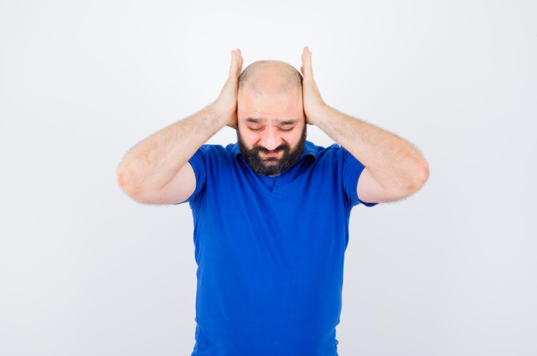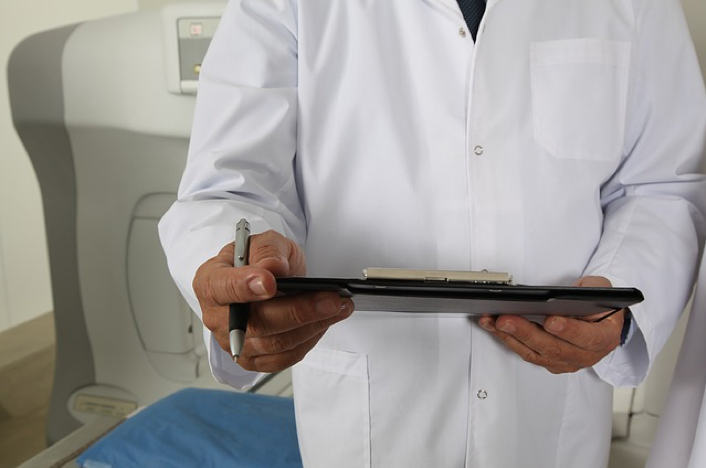What are some of the latest developments in the treatment of misophonia? Do you feel stressed or tense when suddenly someone starts chewing or breathing loudly? Do you feel a lack of control over your reactions upon hearing such sounds? Does hearing someone sniff or snore upset you or make you angry? You may be suffering from a condition known as “Misophonia.” In this condition, you suffer from anxiety and other mental health symptoms even when hearing certain everyday normal sounds. This can cause you to cringe, squirm, or react negatively and cause social awkwardness. Thus, it is important to seek effective treatments for this condition.

(Source)
What is Misophonia? Is It another Word for Hyperacusis?
Misophonia sound triggers don’t have a diagnosis. While chalk on a board or nails on a wall might make many people cringe, this doesn’t imply that everyone has Misophonia. The clear distinction between generic cringe and Misophonia is that in the latter condition, patients overreact or act instantly in an aggressive, aggressive-passive, or negative way. Moreover, Misophonia is a general irritation of certain sounds, while Hyperacusis refers to the sensitivity one has to a certain sound’s characteristics.
Latest Treatment Options for Misophonia
There is still an extensive need for research about Misophonia. Experts and doctors are trying their best to treat and find solutions for this condition. Latest developments and research have led to significant advances in the treatment processes. Now, there is a broad range of treatment options that may help in reducing negative responses due to Misophonia triggers.
However, our focus in this article will be on the latest therapy treatments that are helping Misophonic people maintain a consistent response to Misophonia triggers. If you are living with this condition, learn the treatment options to work out the best solution specific to your lifestyle with your doctor’s help.
Exposure Therapy
Exposure therapy utilizes a psychological approach that helps patients overcome their fears resulting in aggression, anxiety, anger, depression, stress, or any other negative reaction. It enhances the thought process of an individual and helps them counter the responses that otherwise occur without any proper treatment, such as in Misophonia.
For example, the treatment may involve exposing the patient to the Misophonia triggers that cause them to react and act aggressively. The therapy may start with a low-intensity exposure depending on the severity of the condition. However, the intensity of exposure increases gradually to help the patient overcome their fears and build tolerance.
Tinnitus Retraining Therapy (TRT)
Tinnitus Retraining Therapy involves treatment procedures to help tinnitus patients cope with ringing (or any other sounds or sensations) in their ear(s). Ringing or buzzing in the year can be constant and discomforting. Therefore, retraining therapy in this sense helps build tolerance and form a level of patience against the triggers. For example, in tinnitus, the treatment may involve building tolerance against ringing in the ear. Conversely, in the case of Misophonia, the retraining therapy may help reduce the impact of certain sound triggers and negative responses against them.
Biofeedback
Biofeedback encourages patients to notice and jot down how and why they are noticing some symptoms. With the use of auditory and visual feedback, patients learn how to notice the symptoms of stress, anxiety, depression, etc. They may learn to notice muscle tension, heart rate, body temperature, and other signs.

(Source)
By controlling the psychological and physical effects of stress or any other symptoms that occur due to Misophonia, patients can learn to cope. They can easily relax their mind and feel at ease through several techniques. These may include relaxing muscles, slowing heart rate, reducing signs of body temperature spikes, etc.
Dialectical Behavior Therapy (DBT) & Cognitive Behavioral Therapy (CBT) Techniques
Through CBT, patients with Misophonia learn about their responses and sound trigger symptoms. This helps them to produce coping strategies that later help in keeping control over the negative reactions. The primary focus is on the negative thinking patterns relating to Misophonia triggers sounds.
By adjusting and unlearning the responses, emotions, and feeling, patients learn to cope with Misophonia through effective management strategies.
Hypnotherapy
Some experts believe that hypnosis, the latest development in the treatment of various psychological, psychosomatic, and other forms of conditions, can help with Misophonia. This may be true based on the evidence. Hypnotherapy utilizes a hypnotic state to help patients focus on their inner experiences by detaching external experiences temporarily.
Latest Developments in the Treatment of Misophonia: Conclusion
Coping with Misophonia is difficult. It can make your daily activities difficult. What’s more, misophonia can cause social awkwardness and anxiety. Hence, it leaves you with the feeling of loneliness, stress, depression, etc. You should find the best doctor to help you treat your condition. A good doctor will help to regain control over thoughts and responses through the use of different treatment methodologies.
At the Misophonia Cognitive Center™, Dr. Stephen Geller Katz LCSW-R offers the best Misophonia treatment options. He helps his patients according to their needs and gives individualized care.
Call us at 646-585-2251 to schedule a convenient online appointment.
Reference Links:
https://www.healthline.com/health/misophonia
https://www.self.com/story/misophonia-pandemic-tips
https://www.medicinenet.com/misophonia/article.htm
https://www.dovepress.com/misophonia-current-perspectives-peer-reviewed-fulltext-article-NDT
